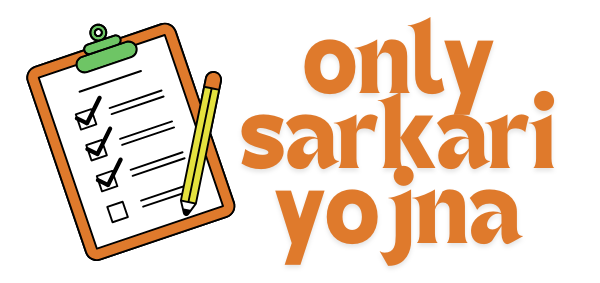Effective communication is paramount in daily interactions, significantly influencing both personal and professional relationships.
Whether conveyed through verbal, non-verbal, or written means, the ability to articulate thoughts clearly can greatly impact outcomes.
Various barriers can obstruct communication efforts, resulting in misunderstandings.
This document examines the importance of developing effective communication skills, identifies common obstacles, and provides practical strategies for improvement.
Additionally, it emphasizes the significance of active listening and the principles of non-violent communication in fostering empathy and understanding.
We invite you to explore the intricacies of effective communication and its profound impact on our lives.
The Importance of Effective Communication Skills

Effective communication skills are crucial in all areas of life, serving as the foundation for robust interpersonal relationships, teamwork, and successful negotiations.
In both personal and professional settings, the ability to articulate ideas clearly fosters message clarity and enhances emotional intelligence, which is essential for building rapport and trust.
Furthermore, effective communication contributes to improved conflict resolution and greater audience engagement, ultimately resulting in better outcomes and increased productivity.
Why Communication Skills Matter
Communication skills are of paramount importance as they significantly influence our ability to express ourselves, comprehend others, and navigate the complexities of interpersonal dynamics. Mastery of both verbal and non-verbal communication enhances clarity and confidence, enabling individuals to articulate their thoughts and feelings effectively.
These competencies extend beyond merely speaking clearly; they also include active listening, which fosters empathy and cultivates genuine connections between individuals. By attentively observing verbal cues and body language, one can acquire invaluable insights into the emotions and intentions of others, thereby promoting mutual understanding.
The impact of clear communication transcends personal interactions and extends into professional environments, where effective dialogue can lead to improved teamwork and productivity. In everyday situations, whether during casual conversations or formal meetings, refining these skills ensures that messages are conveyed accurately, minimizing misunderstandings and strengthening relationships.
Types of Communication
Communication can be classified into several categories, including verbal communication, non-verbal communication, and written communication.
Each category serves specific purposes and utilizes distinct techniques to convey messages effectively. A comprehensive understanding of these types is essential for adapting one’s communication style to various contexts and audiences, thereby enhancing overall communication effectiveness.
Verbal, Non-Verbal, and Written Communication
Verbal communication encompasses spoken words and their delivery, significantly influencing the impact of a message. Non-verbal communication, on the other hand, includes body language, gestures, and facial expressions, which may either complement or contradict verbal messages.
Written communication relies on clarity and structure to convey information effectively.
Each form of communication plays a crucial role in facilitating effective dialogue and engaging the audience. For instance, during discussions, the tone and pace of speech can evoke various emotional responses, thereby shaping the direction of the conversation.
Similarly, non-verbal cues, such as a nod of agreement or crossed arms, can either reinforce or undermine what is verbally expressed, resulting in a more nuanced interaction.
Moreover, written communication must be approached with careful consideration; well-organized thoughts presented clearly enhance comprehension and sustain the reader’s interest.
Understanding the interplay between these forms of communication is essential for building connections and ensuring that messages resonate profoundly.
Barriers to Effective Communication
Barriers to effective communication can significantly hinder the flow of information and understanding. These barriers may stem from cultural differences, varying levels of language proficiency, or differing expectations among individuals.
To mitigate these challenges, it is imperative to promote active listening, ensure clarity of intent, and implement effective feedback mechanisms. Such strategies will facilitate improved interactions and enhance overall communication efficacy.
Common Obstacles and How to Overcome Them

Common obstacles to effective communication often include misunderstandings, assumptions, and emotional responses that can disrupt the flow of dialogue. Overcoming these challenges necessitates adaptability and a focus on conflict resolution techniques to ensure clarity and facilitate effective negotiation.
In numerous situations, individuals may misinterpret the intentions underlying another person’s words, which can lead to unnecessary tension. For instance, constructive feedback from one individual may be perceived as criticism by another, resulting in defensive emotional reactions.
To navigate such challenges, the practice of active listening is paramount. This entails fully engaging with the speaker and thoughtfully reflecting on their words before formulating a response. Creating an environment conducive to open dialogue promotes transparency, allowing participants to express their feelings without fear of reprisal.
Additionally, participants should cultivate flexibility, demonstrating a willingness to consider alternative perspectives and adjust their communication styles as needed.
By implementing these practical strategies, individuals can effectively mitigate conflicts and enhance overall interactions.
Improving Your Communication Skills
Enhancing communication skills is an ongoing process that requires the integration of various techniques and strategies designed to improve one’s ability to convey and receive messages effectively.
By prioritizing active listening, developing strong presentation skills, and employing feedback mechanisms, individuals can markedly enhance their communication effectiveness over time.
Practical Tips and Strategies
Practical tips and strategies for enhancing communication skills encompass participation in communication training sessions, active engagement in conversations, and the utilization of various communication tools to facilitate clear exchanges. Additionally, developing storytelling techniques and assertive communication can significantly improve interpersonal dynamics.
To implement these principles effectively, individuals may consider attending workshops specifically focused on communication strategies, such as those offered by local community colleges or professional organizations. Engaging in role-playing exercises allows participants to practice real-life scenarios and receive constructive feedback.
Furthermore, online platforms like Coursera or LinkedIn Learning offer accessible courses that enable individuals to learn at their own pace. Practicing assertive communication through the establishment of personal boundaries in conversations not only promotes clarity but also enhances confidence.
These methods, along with active involvement in discussions, create a strong foundation for effective interpersonal communication.
Communication in Different Settings
The effectiveness of communication varies significantly across different contexts, including personal relationships, workplace environments, and public speaking engagements.
A thorough understanding of audience analysis and the ability to adapt one’s communication style are essential for successful interactions and the promotion of team collaboration.
Effective Communication in Personal and Professional Contexts
Effective communication in both personal and professional contexts necessitates a nuanced understanding of interpersonal dynamics and the ability to cultivate strong relationships through clarity in both written and verbal interactions. The development of negotiation skills and the fostering of an environment conducive to open dialogue are essential components of successful communication.
In personal communication, individuals often prioritize empathy and emotional connection, which serve to enhance trust and understanding. For instance, actively listening during a conversation with a friend, maintaining eye contact, and responding with thoughtful gestures can significantly strengthen these bonds.
In contrast, the professional sphere places a premium on clarity and organization. A well-structured email, for example, not only conveys professionalism but also demonstrates attention to detail. Establishing clear agendas for meetings promotes effective collaboration, enabling participants to concentrate on objectives and desired outcomes.
Therefore, while both forms of communication seek to establish connections among individuals, the approaches and techniques employed can vary significantly based on the context.
The Role of Active Listening

Active listening is essential to effective communication, necessitating a deliberate effort to comprehend the speaker’s message and respond with consideration.
By developing listening skills that encompass empathy and the provision of constructive feedback, individuals can significantly improve their communication effectiveness and foster stronger relationships.
How to Listen Effectively
To listen effectively, it is essential to cultivate a comprehensive set of listening skills that emphasize engagement and understanding, while also being sensitive to nonverbal cues and emotional intelligence. The implementation of feedback mechanisms can further enhance the listening process and ensure clarity of communication.
One practical technique for effective listening is active listening, which entails fully concentrating on the speaker, responding thoughtfully, and summarizing their key points to confirm understanding.
Additionally, developing emotional intelligence can significantly enhance interpersonal interactions; being aware of one’s own emotions and those of others can facilitate deeper connections.
Employing techniques such as nodding, maintaining eye contact, and using verbal affirmations can create a more engaging environment that encourages open dialogue.
Furthermore, it is crucial to eliminate distractions to allow for undivided attention to the speaker, thereby reinforcing the listener’s commitment to understanding and valuing the conversation.
Non-Violent Communication
Non-violent communication is an approach that prioritizes empathy and understanding in dialogue, with the objective of fostering connections rather than escalating conflicts.
By adhering to communication ethics and emphasizing conflict resolution, individuals can engage in challenging conversations with integrity and compassion.
Using Empathy and Understanding in Communication
Utilizing empathy and understanding in communication enables individuals to connect on a deeper level, thereby fostering effective dialogue and enhancing relationship building. By practicing active engagement and adhering to ethical communication standards, conversations can become more constructive and meaningful.
In various contexts, including workplaces, educational institutions, and personal relationships, this empathetic approach is of paramount importance.
For example, during a workplace meeting, taking a moment to acknowledge a colleague’s concerns can cultivate a more collaborative atmosphere in which team members feel valued. Likewise, educators who demonstrate empathy toward their students can establish a supportive environment that encourages open discussions and enhances the learning experience.
In personal relationships, being present and actively listening to an individual’s feelings can strengthen bonds and facilitate deeper connections. Overall, empathy enriches communication, making interactions not only more pleasant but also significantly more effective.
Frequently Asked Questions
What are effective communication skills?

Effective communication skills refer to the ability to convey information, thoughts, and feelings clearly and accurately to others. It involves using various forms of communication, such as verbal, nonverbal, and written, to effectively express oneself and understand others.
Why are effective communication skills important?
Effective communication skills are essential in both personal and professional relationships. They improve understanding, build trust, and facilitate problem-solving. Good communication skills also lead to better collaboration, teamwork, and overall success in academic and workplace settings.
How can I improve my effective communication skills?
To improve your effective communication skills, you can:
- Practice active listening and pay attention to both verbal and nonverbal cues.
- Use clear and concise language to convey your message.
- Be aware of your body language and tone of voice.
- Ask questions and seek feedback to enhance understanding.
- Be respectful and empathetic towards others.
What are some barriers to effective communication?
Barriers to effective communication can include:
- Poor listening skills and lack of attention.
- Cultural and language barriers.
- Physical barriers, such as noise or distance.
- Emotional barriers, like personal biases or defensive reactions.
- Lack of clarity and misunderstandings.
How can I overcome communication barriers?
To overcome communication barriers, you can:
- Be an active listener and pay attention to nonverbal cues.
- Be aware of cultural differences and adapt your communication style accordingly.
- Eliminate physical barriers, such as noise or distractions.
- Be open-minded and non-judgmental in your interactions.
- Clarify any misunderstandings and ask for feedback.
Can effective communication skills be learned?
Yes, effective communication skills can be learned and improved through practice and training. By actively working on your listening, speaking, and writing skills, and being mindful of your body language and tone, you can become a better communicator. Seeking feedback and continuously learning from your interactions can also help you develop effective communication skills.




